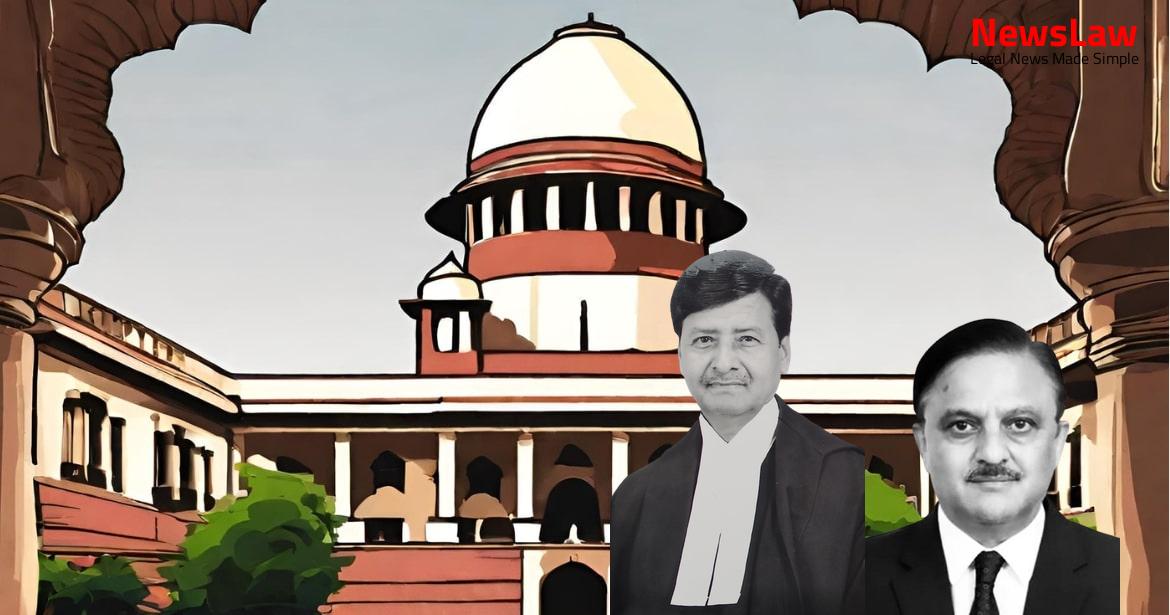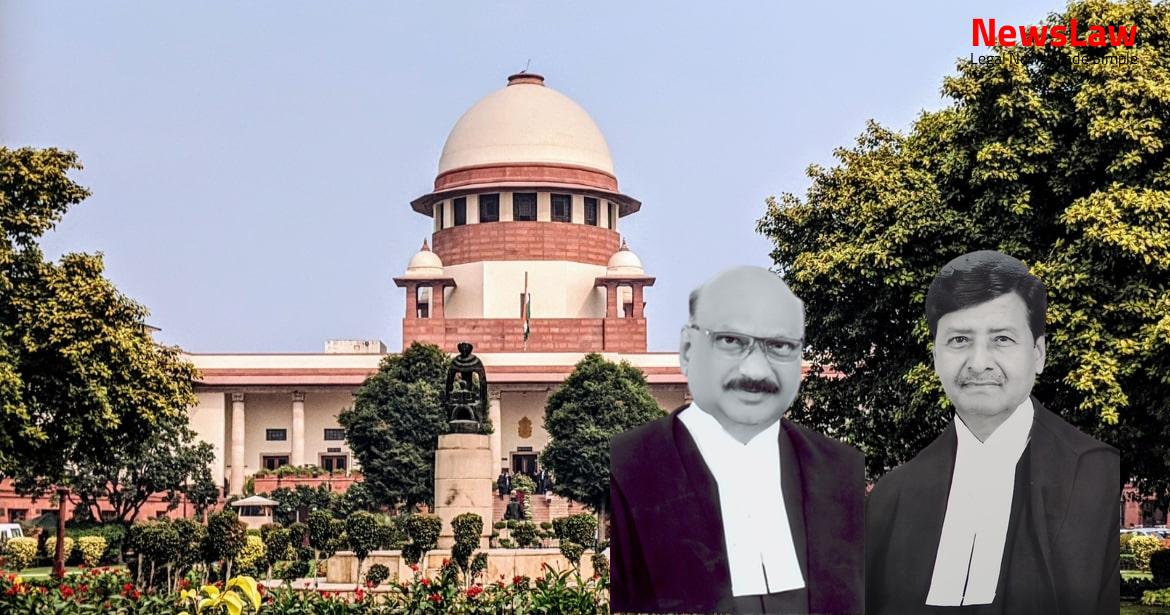In the legal case concerning ‘X’, where the petitioner alleged illegal detention, the High Court directed crucial measures to ascertain ‘X’s wishes and ensure her well-being. Upholding rights and dignity, the Court ordered counseling and a thorough investigation. This case sets a significant precedent in protecting the interests of individuals facing similar situations. Stay tuned for more updates on this important legal development.
“X” : the individual who was the subject of the habeas corpus petition
Facts
- Interim orders of the Kerala High Court directed an interview of ‘X’ with Ms Saleena V G Nair to ascertain if she was voluntarily residing with her parents or under illegal detention.
- The interview was to be arranged in consultation with the Principal Judge of the Family Court, and ‘X’s parents were allowed to join the video conferencing session.
- Ms Saleena V G Nair, a Member of the e-Committee of the Supreme Court on deputation, interacted with ‘X’ and submitted a report.
- The Principal Judge of the Family Court submitted a report on the modalities. This Court issued interim directions based on grievances.
- ‘X’ expressed her intention to become a lecturer and focus on her career during interactions with the Court.
- The petition for a writ of habeas corpus alleged ‘X’ was being forcibly kept by her parents against her wishes to remain with the appellant.
- The High Court ordered the District Legal Services Authority to visit ‘X’s parents and record her statement to determine if she was under illegal detention.
- Ms. Nair’s report indicated that ‘X’ had sufficient time to express her intent and desire.
- ‘X’ was given a break during the recording of her statement to reflect on what she had stated.
- The High Court directed ‘X’ to undergo a counseling session with a psychologist from a counseling center.
Also Read: Interpretation of Parliamentary Privileges: Immunity from Prosecution for Bribery
Arguments
- Learned counsel for the appellant submits that the High Court has been directing counselling for individuals in similar situations as ‘X’.
- There is an apprehension that counselling may be used to change the sexual orientation of individuals against their will.
- The concern is that counselling should not be a way to override the individual’s conscious choices.
Also Read: Legal Analysis on Arbitration Petition Limitation Period
Analysis
- Court must grant ad-interim police protection to petitioners in cases involving same-sex, transgender, inter-faith, or inter-caste couples before establishing the risk of violence.
- Courts should not pass directions for counselling or parental care when the person is brought before the Court.
- Court must ensure the detained or missing person faces no obstacles in expressing their wishes to the court.
- Court must conduct in-camera proceedings to protect privacy.
- Court must not delay the disposal of the case and create an environment for free dialogue.
- Court must avoid making any pejorative comments or directions and should ensure privacy and dignity of the parties involved.
- Effort must be made to create a conducive environment for a free and uncoerced dialogue to ascertain the wishes of the detained or missing person.
- Courts must ensure individuals alleged to detain the person are not present during proceedings and must consider the age of the detained person.
- Court should prioritize habeas corpus petitions and protection petitions filed by partners, friends, or natal family.
- Judges must not substitute their subjective values for those protected by the Constitution and must ensure detained person’s minority is not used to dismiss a petition.
- The court must refer to the guidelines provided and strictly adhere to them in judgments regarding habeas corpus petitions or petitions for police protection by intimate partners.
- The guidelines should be followed both in letter and spirit as a mandatory minimum to safeguard the fundamental rights and dignity of intimate partners and LGBTQ+ community members who may be unlawfully detained.
Also Read: Analysis of High Courts’ Jurisdiction and Court Orders Under Article 142
Decision
- The Criminal Appeal has been disposed of based on the report of the Judicial Officer.
- Any pending applications have also been disposed of.
Case Title: DEVU G. NAIR Vs. THE STATE OF KERALA (2024 INSC 228)
Case Number: Crl.A. No.-001730-001730 / 2024



